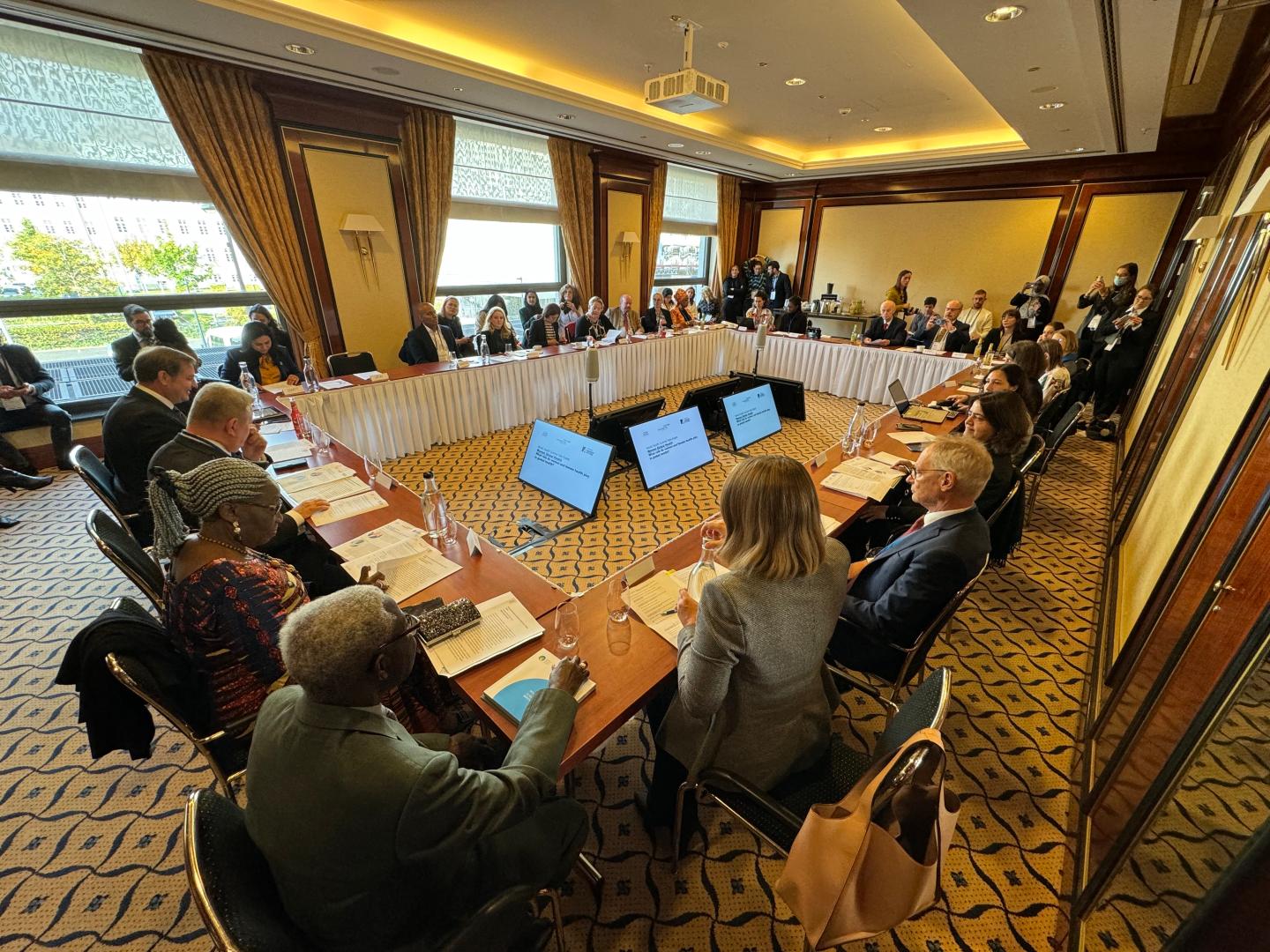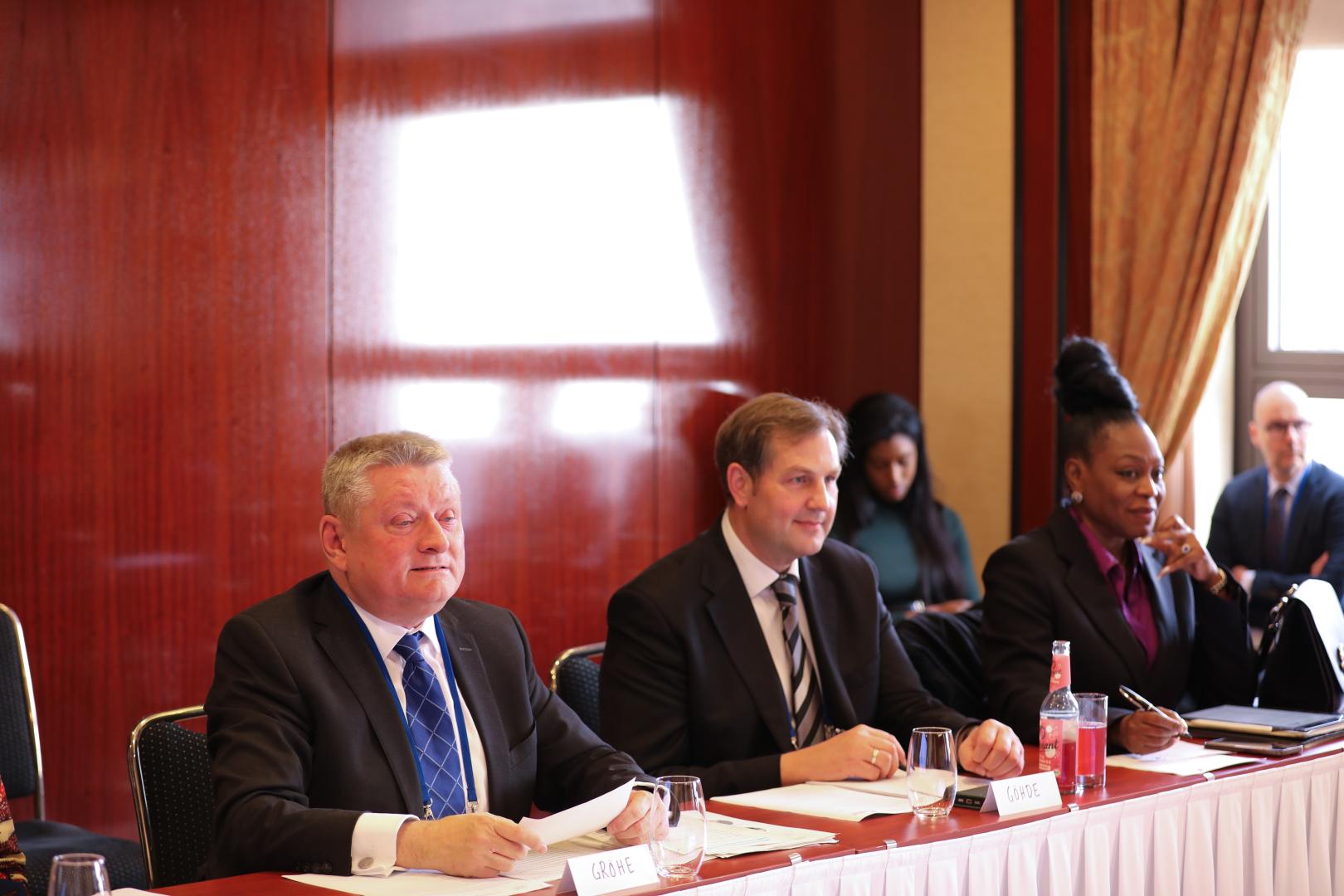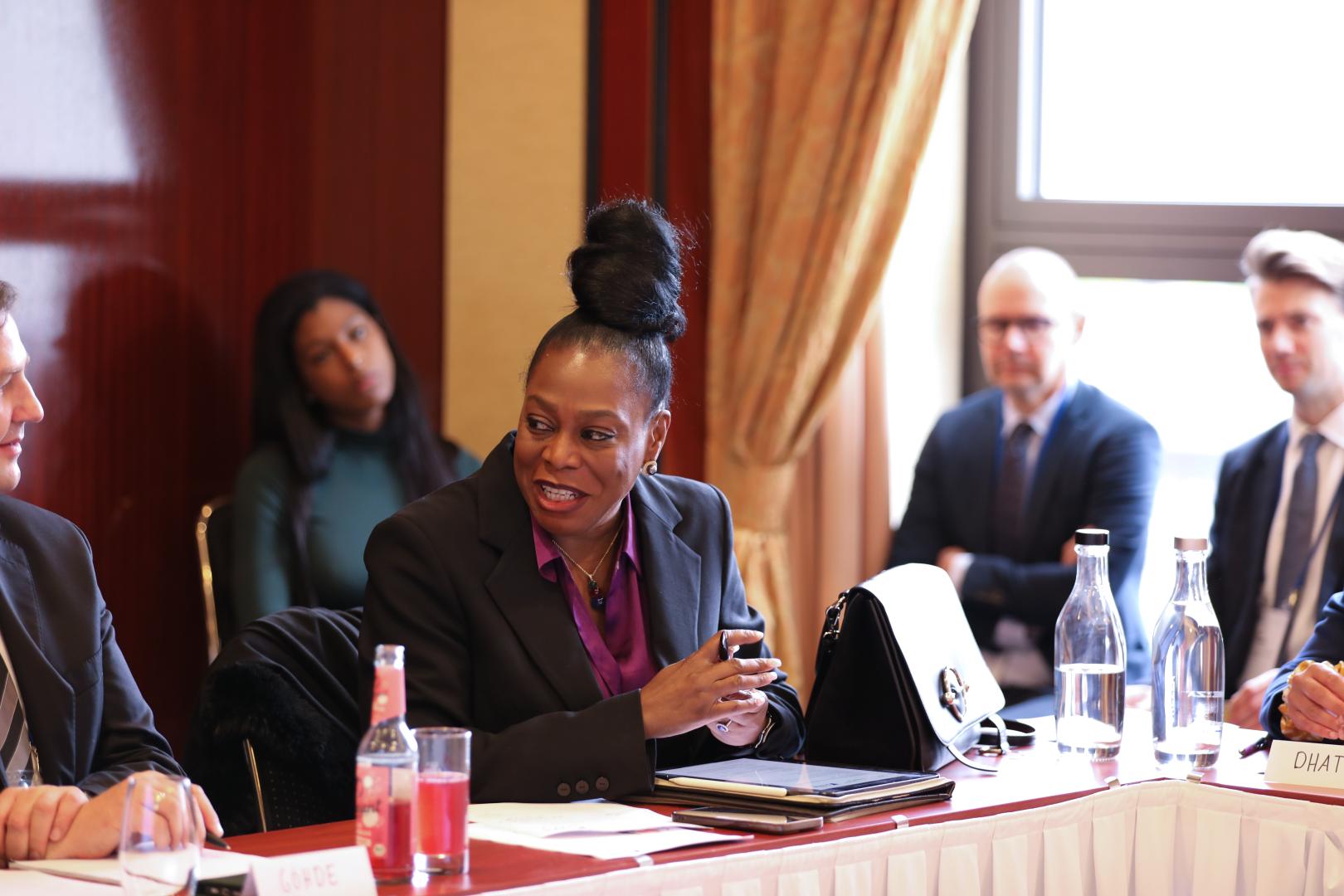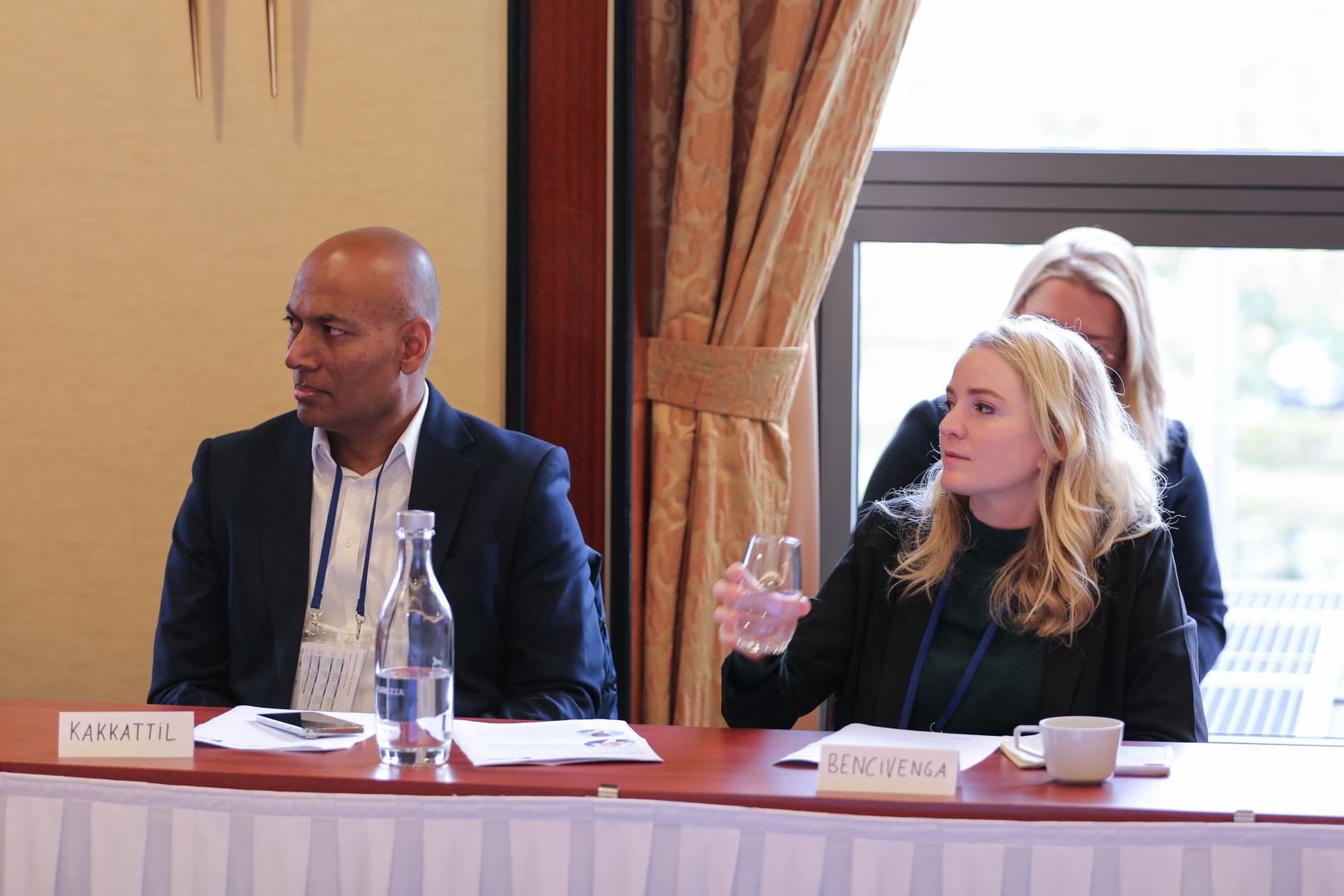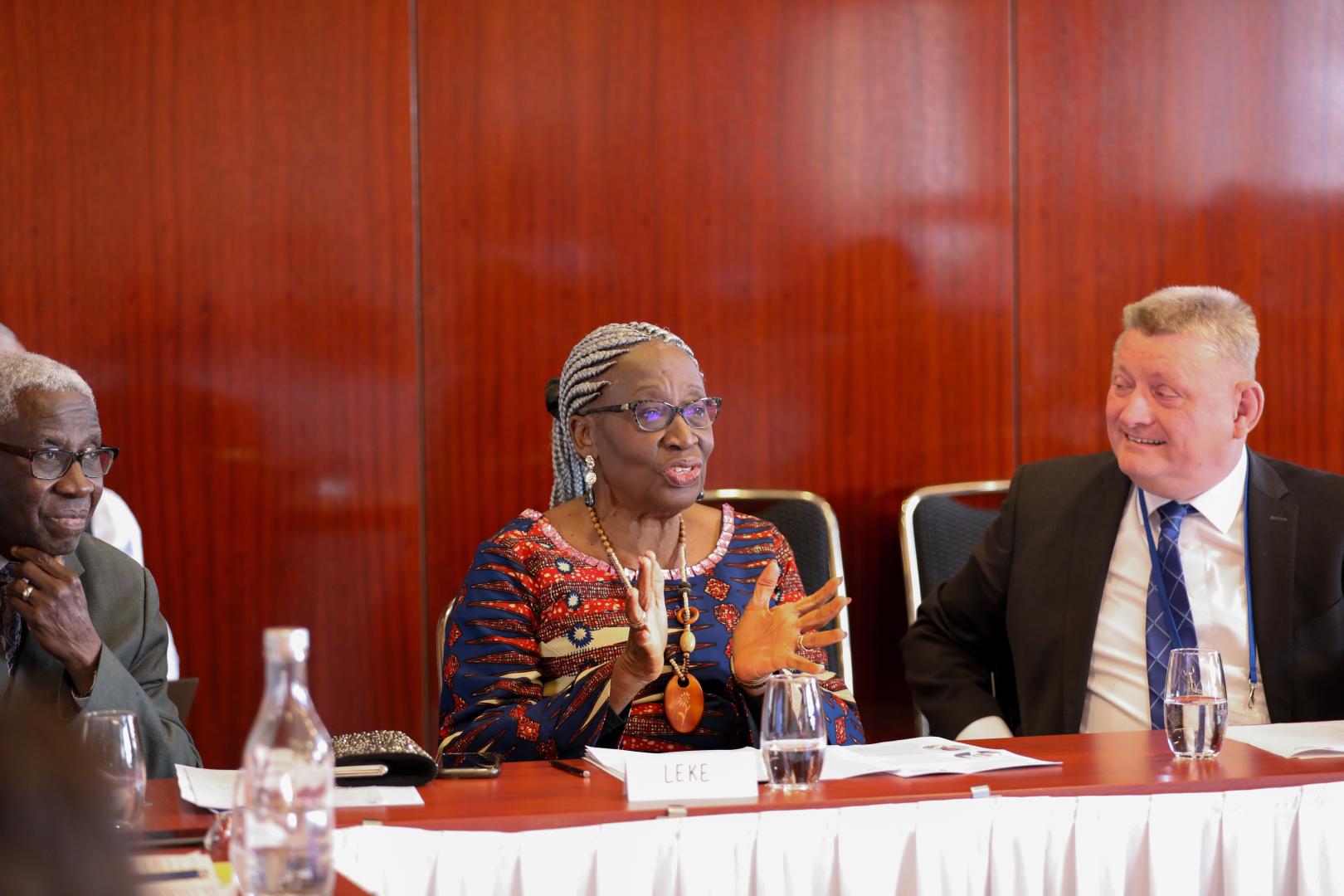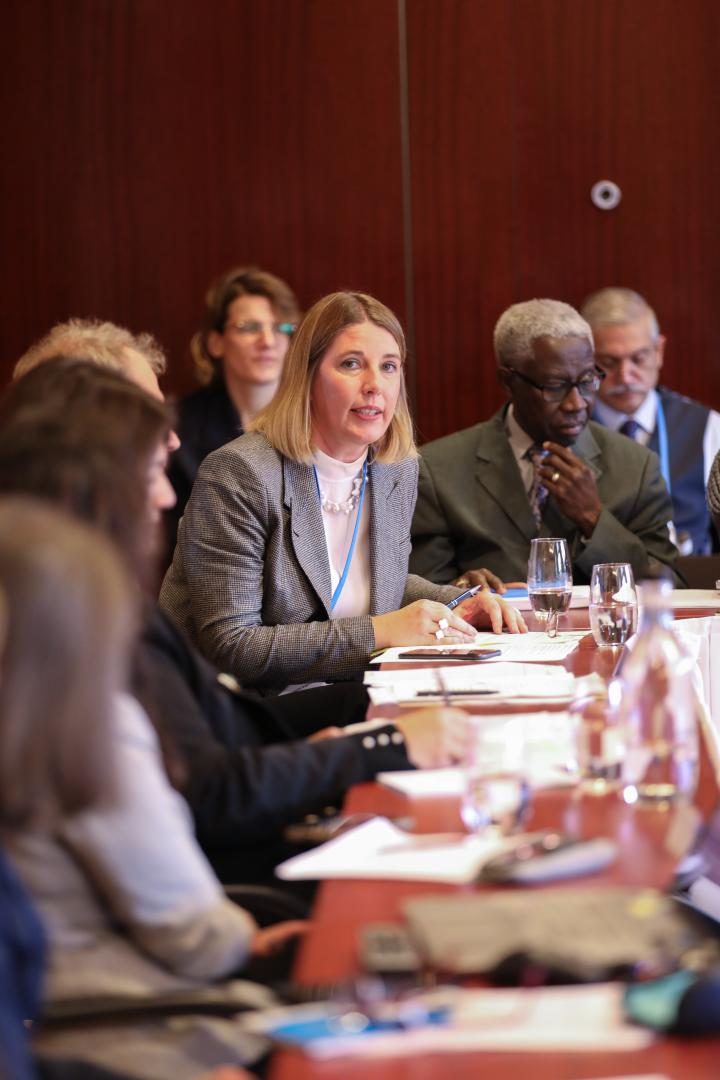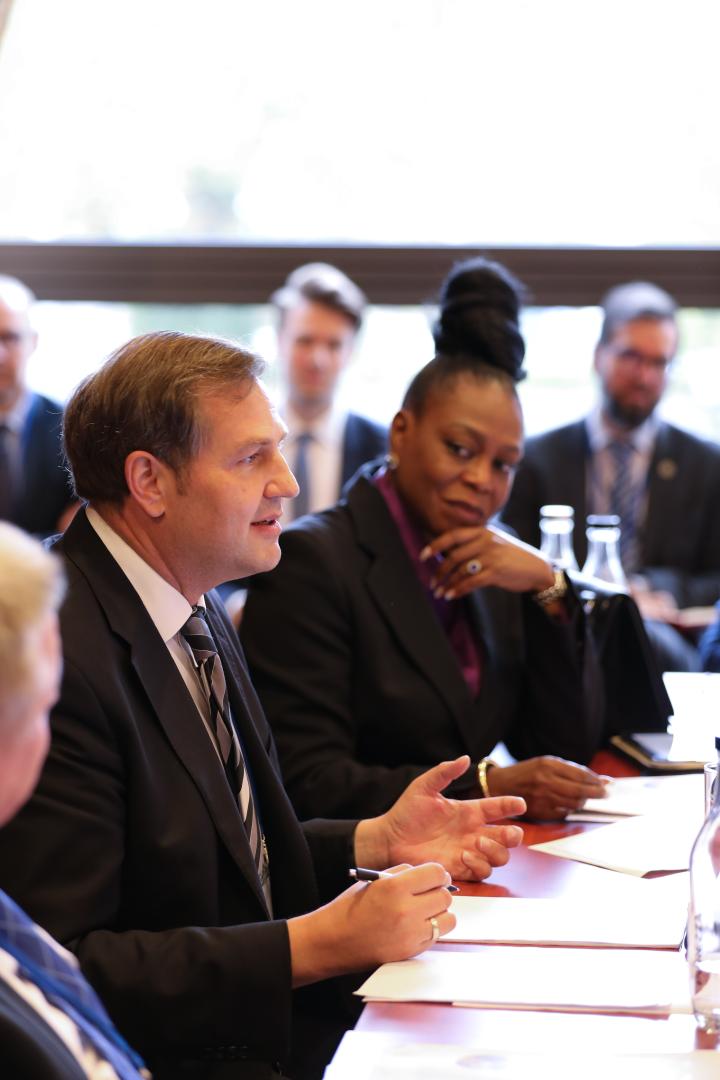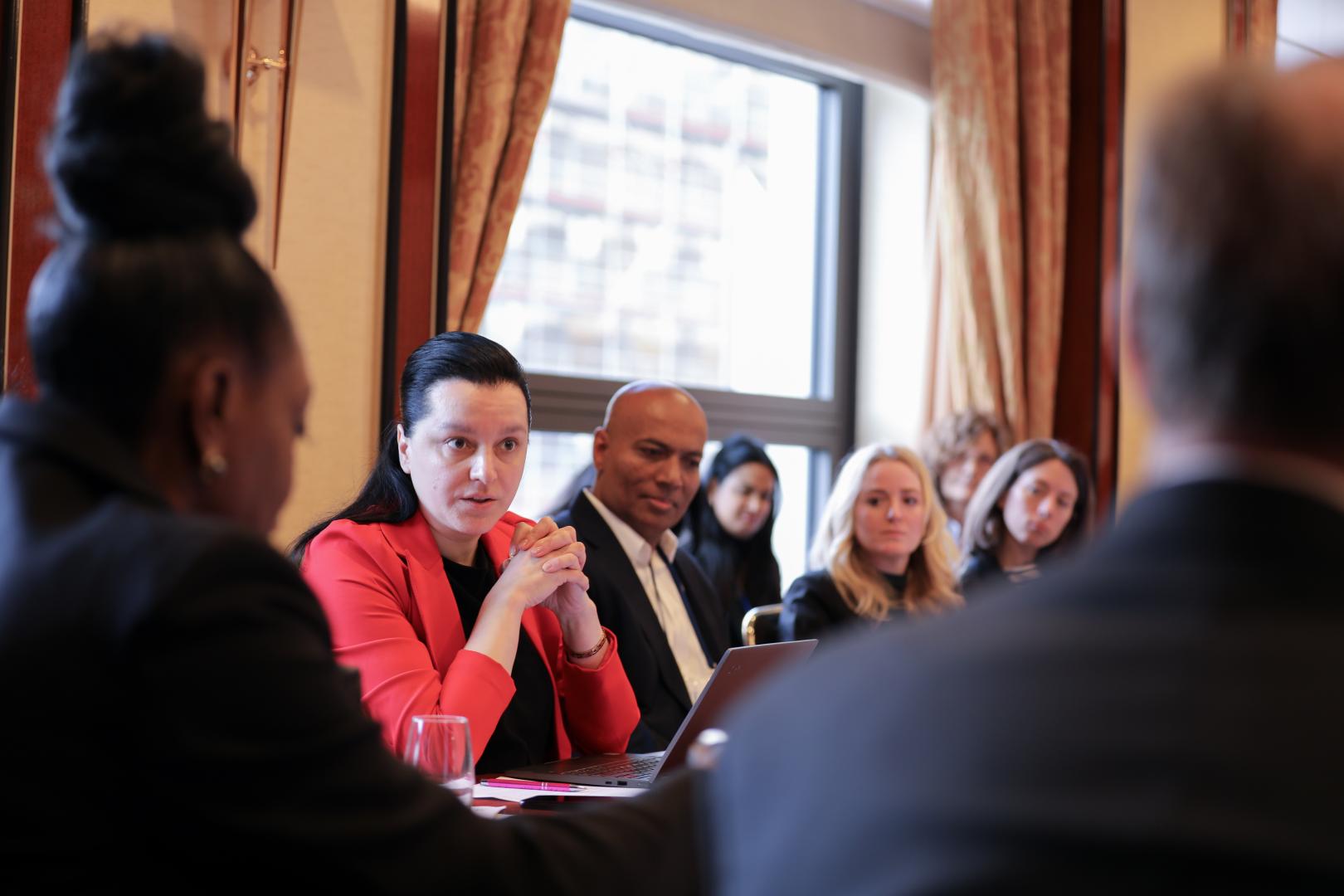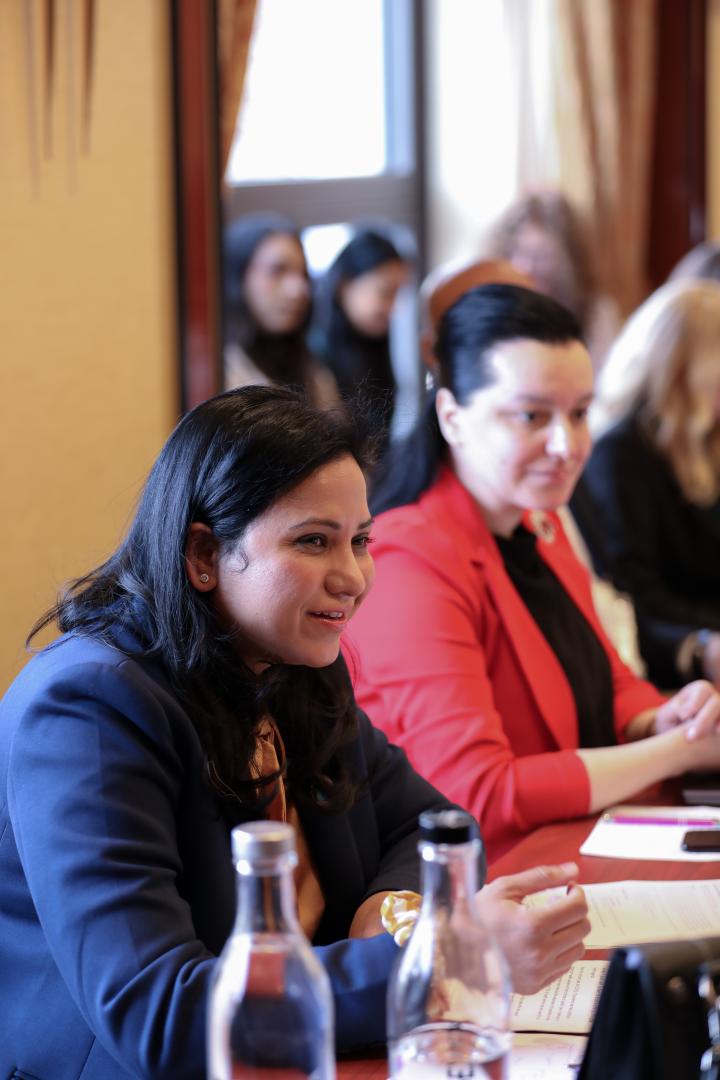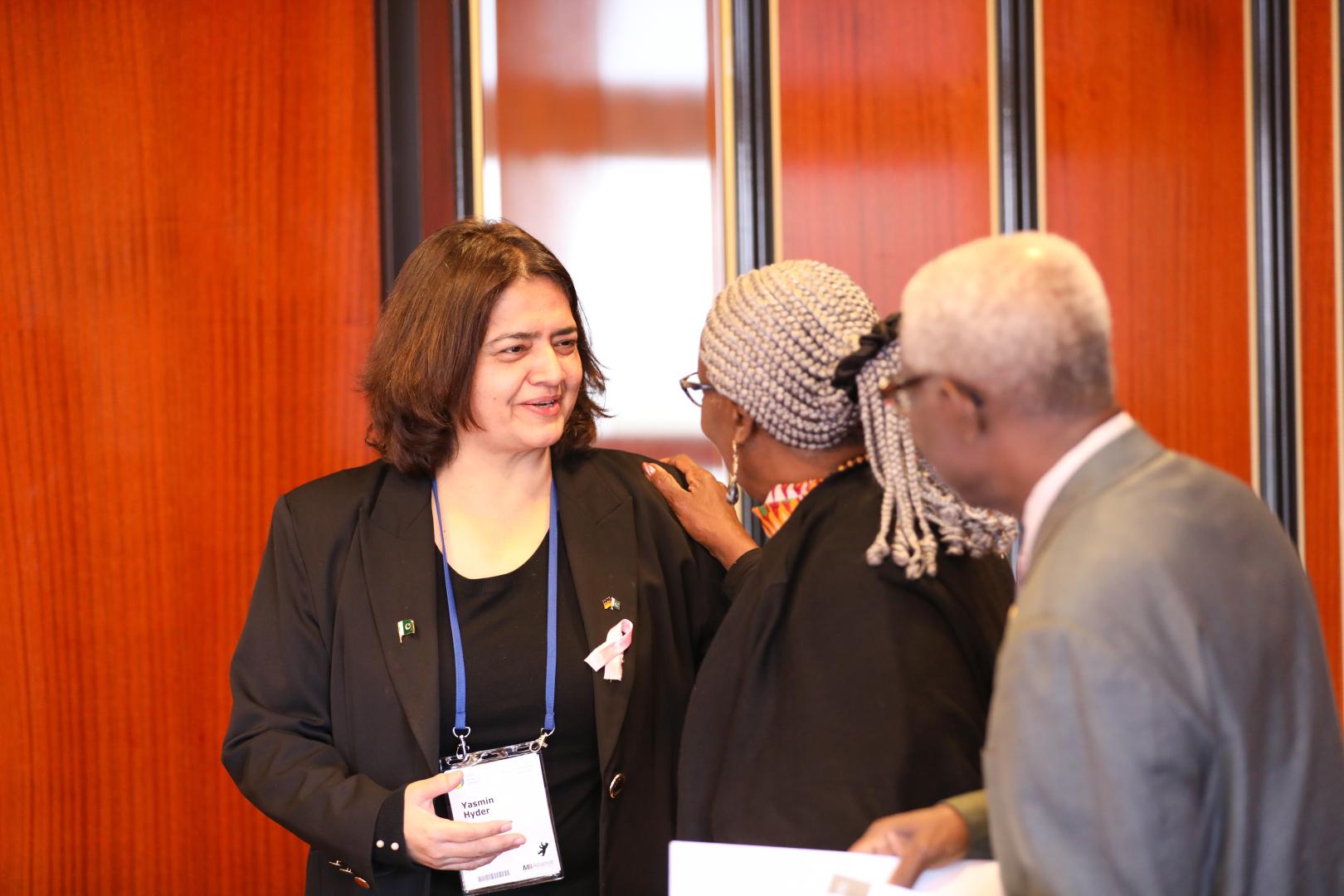Under the title "Women Global Health – What role do women and female health play in global health?", a discussion event took place on 15 October 2023, organised by the Konrad Adenauer Foundation in cooperation with the Virchow Foundation for Global Health and GHA – German Health Alliance. Renowned experts from the health sector, international organisations, civil society, the private sector and the Bundestag attended the roundtable discussion, which took place on the day of the opening of this year's World Health Summit.
The Deputy Chairman of the Konrad Adenauer Foundation and of the CDU/CSU parliamentary group in the Bundestag, Hermann Gröhe, welcomed the guests and pointed out in his introductory remarks that even though women are not a minority, but make up half of the world's population, their role in public health and the achievement of Sustainable Development Goal (SDG) 3 still get far too little attention in many respects. Dr. Ayoade Alakija, Chair of FIND and of the African Vaccine Delivery Alliance, moderated the event and emphasized the importance of women's role not only in health, but in general – whether in society, leadership, education and many other areas. This point was confirmed several times in the course of the further discussion.
In her contribution, Prof. Rose Gana Fomban Leke, laureate of the 2023 Virchow Prize for Global Health, who had been honoured the evening before, underlined the holistic view of women's health across all phases of life. To illustrate this, she shared some personal stories to emphasize the importance of the topic through her own biography. In many health systems, especially in Africa, women's health is too narrowly related to reproductive health alone. Breast cancer, for example, is the number one cause of death among women in her home country of Cameroon, and there are still large gaps in the collection of gender-specific data. In addition, women and girls are disproportionately affected by the health consequences of poverty, flight and conflict. Forced underage marriage and unwanted pregnancies also pose major risks to the mental and physical health of women and girls. Leke concluded by pleading for more research by women and for women, emphasizing that this is a task for all genders.
WHO's Assistant Director-General for External Relations and Governance, Dr. Catharina Böhme, echoed this call and spoke of a feminist vision for public health to make health systems responsive and gender-intentional. After the great progress made in recent decades, for example in maternal mortality, a plateau seems to have been reached in recent years, where development has stagnated. Dr. Mariam Jashi, CEO of the Global Sepsis Alliance and Secretary General of the Medical Women's International Association, criticized that gender differences are still not taken into account enough in clinical trials. The Executive Director and Co-Founder of Women in Global Health, Dr. Roopa Dhatt, also agreed, using an example of the procurement of personal protective equipment for hospital staff during the Covid-19 pandemic. This equipment was too large for the numerous female employees in the hospitals due to its standardization, which is based on a male, white physiognomy. The serious health effects were evident in the fact that protection for women was significantly compromised as a result, creating avoidable risks and dangers in an already challenging situation.
A second focus of discussion revolved around the role of the private sector. Dr. Alakija questioned whether the private sector was willing to invest more in women and gender-specific solutions, which was clearly answered in the affirmative by the Chairman of the Board of the GHA and CEO of the Virchow Foundation, Roland Göhde. Dr. Dhatt pointed out that less than ten percent of innovators are women and that there is still a clear underrepresentation of women, especially in leadership positions, which is even more true in the health sector. For example, 70 percent of all those working in the health sector are female, but only 25 percent in management positions. The pay gap between men and women is one of the highest in the health sector. In addition, there are problems of sexual exploitation and violence in the health sector, which is largely concealed.
Pakistani entrepreneur Yasmin Hyder commented that it is not only important for women to connect with each other, but also that male leaders need to be won over to advocate for gender equality. She emphasized that, in addition to everything already mentioned, climate change poses one of the greatest risks to women's health. In his commentary, Dr. Andreas Ullrich, an internist and specialist in non-communicable diseases, cited the lack of data, especially with regard to gender-specific statistics on risk factors for non-communicable diseases, such as tobacco, alcohol or sugar consumption. He also pointed out that despite significant advances in health research, such as vaccinations against HP virus, there is still a gap in data collection. The fact that these vaccinations are now not only developed, but are also accessible to a broad mass through inclusion in vaccination programmes of Gavi and others, is a great success.
Jennifer Bencivenga, Director of Partnerships and Communications at mTomady, provided a concrete example of successful innovations that have their origins in the consideration of gender differences in healthcare with the history of her company's origins in Madagascar. In this case, in the search for a solution to the question of why women have disproportionately higher health care expenditures than men. Women are often less easily reachable or limited in their accessibility and freedom of action by their partner. But there are solutions for this as well, she explained. Dr. Pradeep Kakkattil, CEO and founder of Health Innovation Exchange (HIEx), concluded the list of comments by emphasizing the success of female entrepreneurship. On average, investments in female entrepreneurs bring significantly higher return rates for investors, yet disproportionately little venture capital flows into female-led companies. Another problem in the field of innovation is the long time it takes for a product to reach the market. He called on the WHO and other institutions to accelerate innovation in the health sector.
The discussion was concluded with a plea from Dr. Alakija to invest more in women and to demand this on a regular basis. In his closing remarks, Roland Göhde particularly emphasized the role of partnerships and the solidarity between women and men for more gender equality and appealed to provide arguments and facts to political decision-makers so that they could better advocate for women and women's health.
Topics
Provided by
Division Analysis and Consulting
About this series
The Konrad-Adenauer-Stiftung, its educational institutions, centres and foreign offices, offer several thousand events on various subjects each year. We provide up to date and exclusive reports on selected conferences, events and symposia at www.kas.de. In addition to a summary of the contents, you can also find additional material such as pictures, speeches, videos or audio clips.
